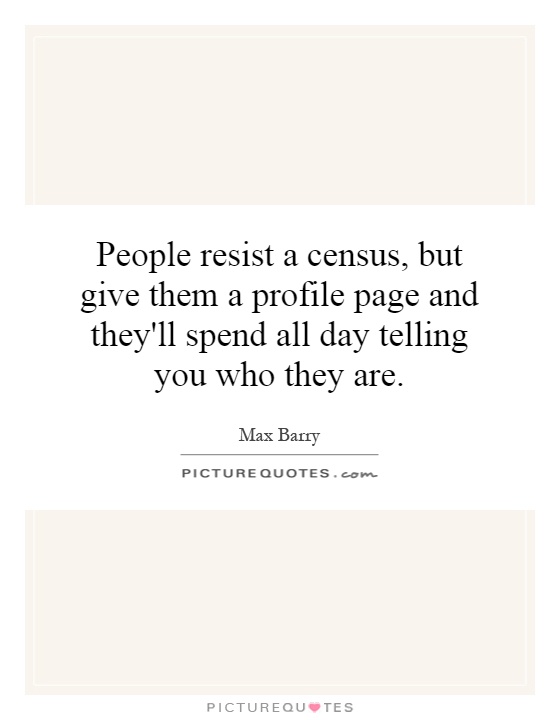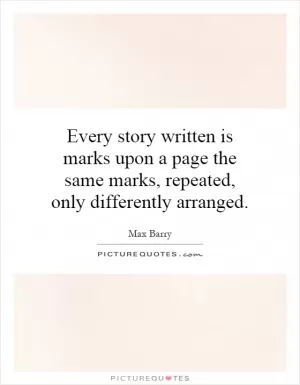People resist a census, but give them a profile page and they'll spend all day telling you who they are

People resist a census, but give them a profile page and they'll spend all day telling you who they are
Max Barry, an Australian author known for his satirical and thought-provoking novels, often explores themes of identity, surveillance, and the power dynamics between individuals and institutions. In his works, Barry frequently delves into the ways in which people resist being categorized or labeled by external forces, while simultaneously craving validation and recognition of their unique identities.The quote, “People resist a census, but give them a profile page and they'll spend all day telling you who they are,” perfectly encapsulates the paradoxical nature of human behavior when it comes to self-representation. On one hand, individuals may feel a sense of unease or resistance when asked to participate in a formal census or survey, as it can feel invasive or reductive to be reduced to a set of demographic data points. However, when given the opportunity to create a profile page on social media or a dating app, people often eagerly embrace the chance to curate and showcase their identities to the world.
Barry’s novels, such as “Jennifer Government” and “Company,” often feature characters who grapple with questions of identity and self-presentation in a hyper-connected, technologically-driven society. In these worlds, individuals are constantly surveilled and monitored by powerful corporations or governments, leading to a heightened awareness of the ways in which their personal information is used and manipulated.
By juxtaposing the resistance to formal data collection with the willingness to engage in self-promotion and self-disclosure online, Barry highlights the complex and contradictory impulses that drive human behavior in the digital age. The desire for privacy and autonomy clashes with the need for validation and social connection, creating a tension that is both humorous and unsettling.
Ultimately, Barry’s exploration of these themes serves as a cautionary tale about the ways in which technology and surveillance can shape our sense of self and our relationships with others. By examining the ways in which individuals navigate these competing impulses, Barry invites readers to reflect on their own relationships with technology, identity, and power in an increasingly interconnected world.












 Friendship Quotes
Friendship Quotes Love Quotes
Love Quotes Life Quotes
Life Quotes Funny Quotes
Funny Quotes Motivational Quotes
Motivational Quotes Inspirational Quotes
Inspirational Quotes